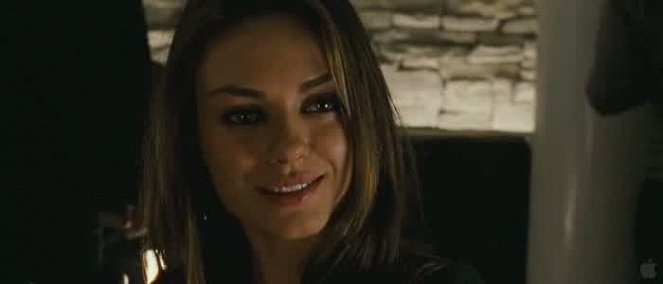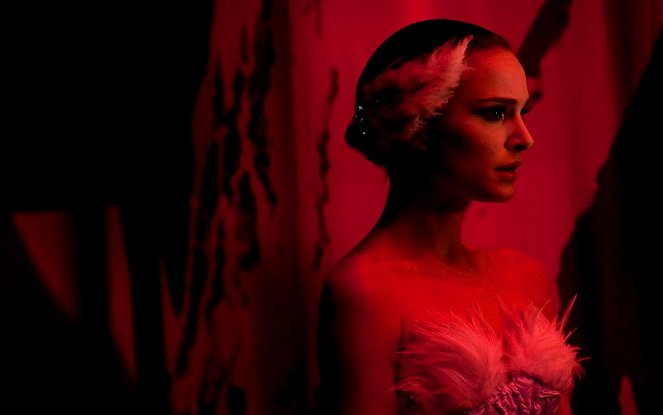Directed by:
Darren AronofskyCinematography:
Matthew LibatiqueComposer:
Clint MansellCast:
Natalie Portman, Mila Kunis, Vincent Cassel, Barbara Hershey, Winona Ryder, Benjamin Millepied, Ksenia Solo, Kristina Anapau, Janet Montgomery (more)VOD (5)
Plots(1)
Natalie Portman gives the performance of a lifetime as Nina, a stunningly talented but dangerously unstable ballerina on the verge of stardom. Pushed to breaking point by her driven artistic director (Vincent Cassel) and the threat posed by a seductive rival dancer (Mila Kunis), Nina's tenuous grip on reality starts to slip away. As the pressure builds, Nina's all-consuming obsessions spin out of control, plunging her into a waking nightmare that will threaten not only her sanity, but her life. (20th Century Fox Home Entertainment)
(more)Videos (5)
Reviews (16)
After the solid but not entirely satisfactory Wrestler, Aronofsky consolidates his position among my most favourite directors. The first hour of Black Swan is pretty similar to Wrestler – we follow very closely (almost intimately) one person at a turning point of their lives, we feel their emotions and every one of their injuries. This is not always very pleasant, Aronofsky knows how to transmit pain from the screen to the viewer like few others. This “introduction” would already be enough for four stars, but the last half hour shattered, disarmed and decimated me; utterly so. I felt a constant chill on my back and I shivered like an aspen tree; my eyes an ears were unable to perceive anything but the film. No other film this year has made me feel like this. 100 %
()
Although Black Swan appears to be made from the same dough as The Wrestler, it is only half true. Yes, it fits quite well superficially - the concept is actually similar, intimate body camera, ruthless details, long tracking shots, scenes of mutilation in the name of foolish desire (again, it is a desire expressed by roaring crowds). But it cannot be overlooked that in one important respect, Black Swan is antithetical to The Wrestler. While The Wrestler was a film where the inside of the hero remained hidden and it was a documentary record of gradual doom, in Black Swan everything is outward, the pain is written into horror expressive scenes, the heroine's psychoses are "Freudian" amplified and accentuated by various dreamlike chimeras. Everything inside happens on the outside at the same time, and the viewer is trapped in the snares of an unreliable storyteller. Where reality ends and Nina's fantastical projection begins is sometimes difficult to decipher. Some of the scenes are suspiciously conventional (you can see it well in all the horror jump scares and phantoms) and I couldn't shake the impression that for the mutating surface, Aronofsky missed what was not visible in The Wrestler, yet was physically felt - an intimate plane of pain "out of desire" leading to the final grand gesture of self-destruction. Black Swan is essentially ancient during the ending, but it didn't affect me nearly as much as Randy's last “ram-jam". Everything is in place here (a famous camera, a devastating Natalie and a magnificent musical accompaniment), yet ecstasy did not come. I think Aronofsky was able to go deeper in the past without theatrical props.
()
Yeah, it’s alright. In the end, I hope it helps real ballet because the over-hyped fans will go see what the girls who are mutilating themselves actually like about it. Otherwise, it's a solo Portman film, no question about it, and it’s more disappointingly inconsistent genre-wise. A few of the special effects are very bad. The mom seems to be right out of Carrie, which didn't have to be the case. Winona, on the other hand, was a delight, but she always is. Cassel is nothing special. In the end, it’s a well-aimed advertisement for ballet, which names like Aronofsky and Portman helped bring to the people.
()
Aronofsky's declaration of love for The Red Shoes. A psycho (not psychological!) update of Swan Lake for the 21st century in art-mainstream trappings with the now traditionally weeping Natalie who also happens to play her own self wonderfully. I expected more of a balletic backstage full of sharp elbows, intrigue, and obsession, and fewer would-be horror elements that Aronofsky didn't quite master yet (um, mirrors… like seriously Darren?). Still, it works, and it escalates magnificently.
()
You can stone me, but Aronofsky is repeating himself for the third time and it's getting old. Although he once again emphasizes the physicality and the decay of the soul and body, the film lacks any sort of more prominent moment that I haven't seen from him before. The lacerated fingers do hurt, but what I saw here was more so pseudo-art, where he gracefully tiptoes around but doesn't get to the core even once. The metamorphoses at the end amused me unintentionally rather than making me feel any kind of gradation or even catharsis. However, I can understand the standing ovation the film receives.
()



Ads